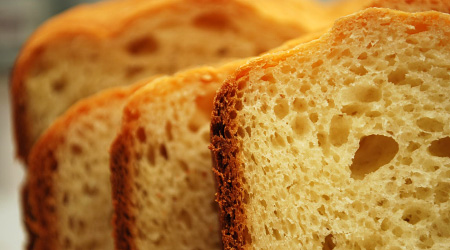9 Tips to Make Your Groceries Last Longer

Throwing away food is becoming an all too common occurrence in most households. The average family tosses approximately 40% of their food purchases into the waste bin resulting in an average loss of $500 per year. By taking a few steps to change how you prepare and store your food purchases, you can sometimes double its shelf life limiting how much needs to be thrown out.
1. Store Bread in the Fridge
In humid environments you may want to consider storing your bread in the refrigerator. Bread normally has a high moisture content and refrigerators to have a dryer environment. The bread will dry out over time but should last a few weeks. This is definitely better than throwing out half a loaf due to mold.
2. Wash Fruits and Vegetables
Many fruits and vegetables are often covered with small amounts of dirt or bacteria and a waxy film. By washing fresh produce in a water solution with a small amount of white vinegar you can remove these elements allowing your purchase to last upwards of two weeks or more.
3. Wrap Celery in Aluminum Foil
If you ever noticed, celery is kept in a loose plastic bag when purchased at the store. Due to the high moisture content in celery it should not be sealed in an airtight bag or container. Loosely wrapping it in aluminum foil will allow it to last longer.
4. Store Cheese in Wax Paper
Wrapping cheese tightly in waxed paper still allows a majority of the moisture to be maintained without the accumulation of liquid on the inside which can lead to mold and a slimy covering. Keep in mind, cheese by definition is a mold and even if it does develop it can easily be cut off.
5. Buy Airtight Plastic Containers
High-quality but inexpensive airtight plastic containers can prevent many dry goods such as cereal and pasta from going stale. The quality of the seal is important since it keeps out moisture and it prevents exposure to air and dust particles.
6. Keep Asparagus in Paper Towels
Fresh asparagus loses moisture quickly so to prevent it from drying out rinse it off thoroughly and then wrap it in a few paper towels before putting it in the refrigerator. This will help keep it fresher longer while allowing to breathe.
7. Add Rice to Seasonings
A shallow container of rice is commonly used to dry out electronics which have inadvertently gotten wet. This characteristic can be used to your advantage by placing a small amount rice in containers with seasonings. This will help prevent moisture accumulation and eliminate clumping for up to six months.
8. Keep Fresh Herbs in a Plastic Bag
Fresh herbs such as parsley and cilantro keep best when thoroughly rinsed and then stored in a plastic bag. Then place the herbs in the crisper drawer of your refrigerator. The moisture is key to prevent them from drying out and should last a week or more.
9. Remove Bad or Damaged Fruit
As the saying goes, one bad apple spoils the bunch so try to remove damaged or bruised fruit as soon as it is noticed. When purchasing fruit, try to buy it as crisp as possible to prevent bruising and as it ripens it is less likely to spoil other produce around it.







